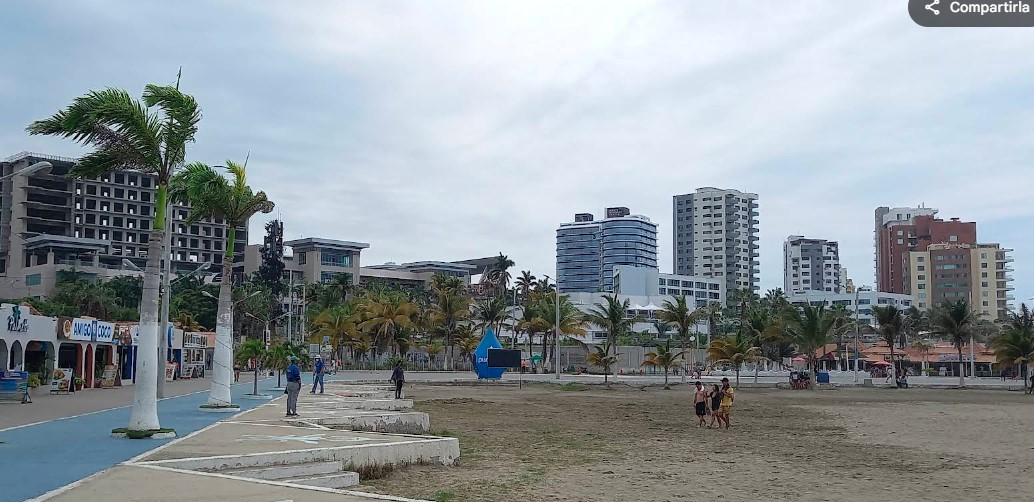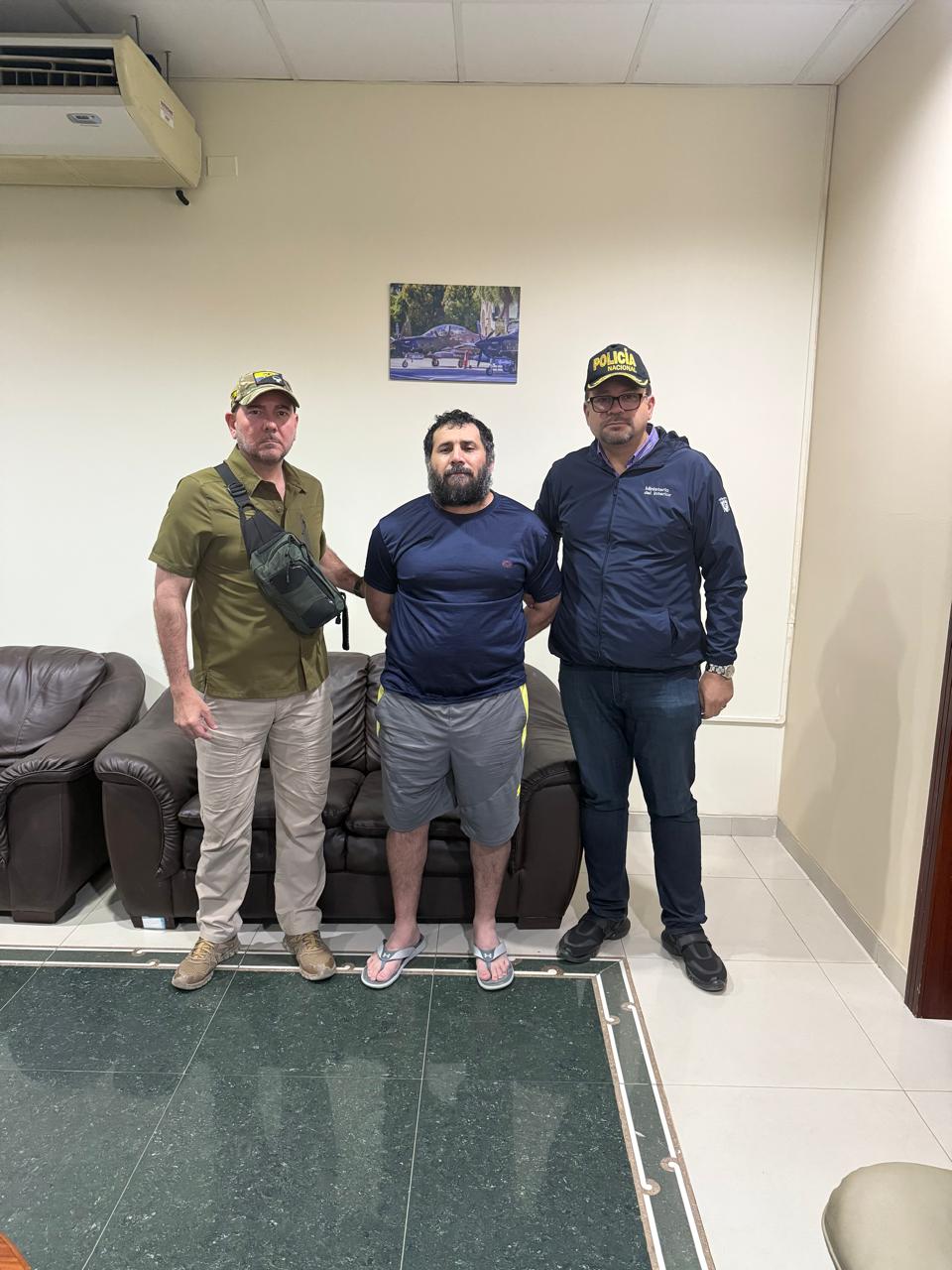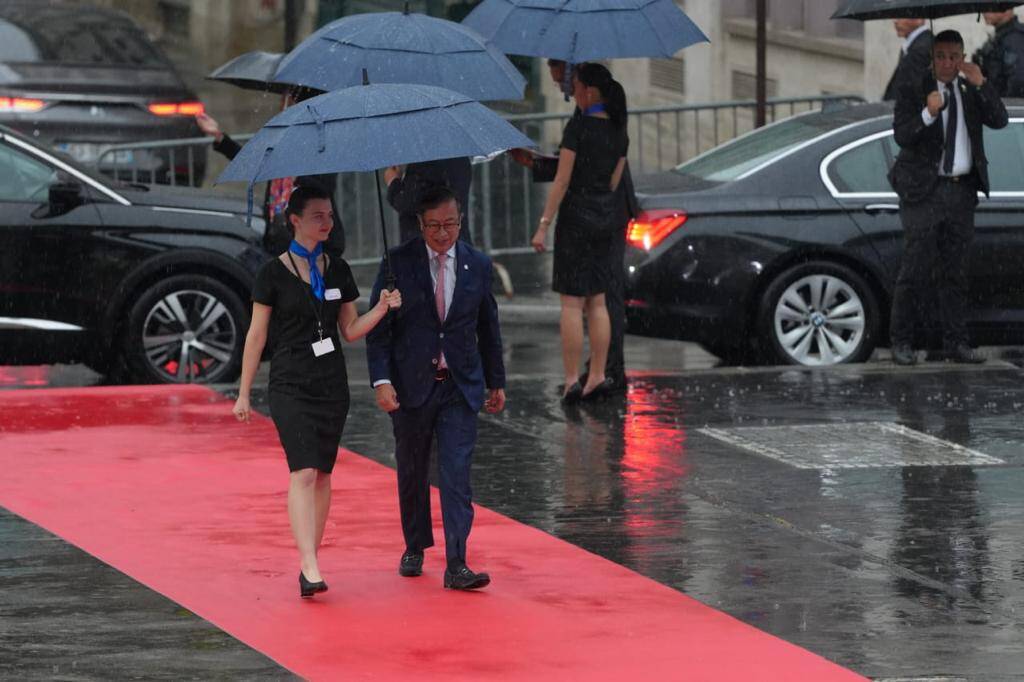The lack of transparency in President Petro's agenda has sparked criticism and speculation about his trip to Manta.

President Gustavo Petro 's surprise visit to the city of Manta, Ecuador, on May 24—without any official information on his agenda—sparked a heated controversy in both Colombia and the neighboring country. The trip, which occurred immediately after his attendance at the inauguration of President Daniel Noboa in Quito, has fueled speculation about his visit to one of the most violent areas of the country and an alleged meeting with alias Fito, the feared leader of the criminal group "Los Choneros."
Although the government denied the meeting and denied any communication with the leader, the silence regarding the details of the stopover in Manta reopened the debate about the lack of transparency in the presidential official agenda and the diplomatic and security risks this entails.
The controversy began with news reports published by Ecuadorian media outlets indicating that President Petro spent the day in Manta on May 25—he had reportedly arrived the previous afternoon—where he stayed in a luxury home. Ecuador's Interior Minister, John Reimberg, himself asserted that the Colombian president arrived directly from the capital to Manta and did not leave during his stay.

Manta is the most populated city in the province of Manabí. Photo: Google Maps
"He left the property directly for Montecristi, toward Manta. He was there in the area, arrived at a luxury house, and stayed there, if I'm not mistaken, for two days. He never even went out to eat; he was locked up there," said John Reimberg.
"I have no idea who this Fito guy is. Like any president who visits a foreign country, I am constantly monitored, day and night, by the sister country's security forces. Enough with the far-right lies," the president said on his X account on Monday.
However, the president's presence in the most populous city in the province of Manabí, with no known public activity and amid a security crisis, has raised other questions. Manta is currently one of the main centers of violence in Ecuador, and several governments, including the United States, recommend against travel to the area.
According to local authorities, it is one of the most dangerous cities in Ecuador and the epicenter of a bloody war between the narco-criminal groups "Los Choneros" and "Los Lobos," who are fighting over drug trafficking routes. There, in Montecristi, alias "Fito," the leader of Los Choneros, was captured on June 15.
The coincidence, however, has been fertile ground for conjecture, one of them published by analyst Mauricio Vargas, who, in His column Manta de dudas in EL TIEMPO quoted an Ecuadorian journalist who assured him that President Petro went to meet with 'Fito's' entourage to seek his mediation with the FARC dissidents alias Iván Mordisco.
While there is no physical evidence to support this version, speculation has been fueled by a letter that, according to the Foreign Ministry, arrived days later at the Colombian Embassy in Quito and was allegedly written by "Fito." According to the Ministry of Foreign Affairs, the document, received by Ambassador María Antonia Velasco and Vice Minister Rosa Villavicencio, requested the intervention of the Colombian State as a guarantor for a negotiated surrender, in order to avoid the kingpin's extradition.

Alias Fito was captured in the port city of Manta. Photo: Courtesy
However, the Foreign Ministry maintains that the authenticity of the letter is in doubt and also denies any mediation. "The Foreign Ministry does not act as a guarantor for drug traffickers; it has no authority to mediate in these types of situations," they stated.
But beyond whether or not Petro met with criminal actors, the lack of clarity about the reason for his visit to an extremely high-risk area has raised alarm bells. Political analyst Carlos Arias warns that citizens not only have the right to know the actions of their leaders, but are also protected by law to demand that accountability. “These are not private agendas; they do not fall within the president's private life. These are official trips funded with public funds and must be covered with the utmost transparency,” he noted.
It should not be forgotten that this is not the first time the president's agenda has been hidden during an international trip. This had already happened between Wednesday, June 21 and Sunday, June 25, 2023, during an official trip to France to attend the Summit for a New Global Financial Compact.
On that occasion, Petro extended his stay for one more day through decree 1003 of 2023—he was officially scheduled to return to the country on June 24—justifying the change in agenda with a supposed meeting with executives from Dassault Aviation, a company interested in selling fighter jets to the Colombian Air Force. However, that meeting was canceled, according to the then ambassador to France, Alfonso Prada, and no other official activity was scheduled for Sunday.
Although the incident went unnoticed at the time—beyond the annoyance it generated among the journalists who accompanied the president on the trip—former Foreign Minister Álvaro Leyva, in his series of letters, rekindled the incident by asserting that the stopover in Paris allowed him to confirm that the president allegedly had a drug addiction problem. “The episode in Paris was embarrassing for me as your Foreign Minister (...) It was in Paris where I was able to confirm that you had the problem,” Leyva wrote.

President Petro during his visit to France. Photo: Presidency
“In France, my father found something rare in Colombia: family time, privacy, calm. His favorite pastime was spending time with my daughters, being a grandfather without distractions. Guilty of disconnecting him a bit? I admit it. We were just looking for a peace that they don't allow there,” said Andrea Petro, the president's eldest daughter, in response to Leyva.
Arias adds that beyond the rumors—which he considers damaging to confidence in the Executive Branch—the structural problem remains the lack of transparency in presidential communications: “It is enshrined in law that Colombians should know what actions our public officials, those who represent us, are taking. Furthermore, in terms of governability, all the rumors that have been generated around it undermine transparency.”
In fact, it was revealed this Tuesday that the president had not informed Congress of his specific trip to the city of Manta. The official communication, dated May 23, only indicated that he would be in Quito from May 24 to 26 for President Noboa's inauguration and attending "working meetings."
CAMILO A. CASTILLOPolitical EditorX: (@camiloandres894)
eltiempo





